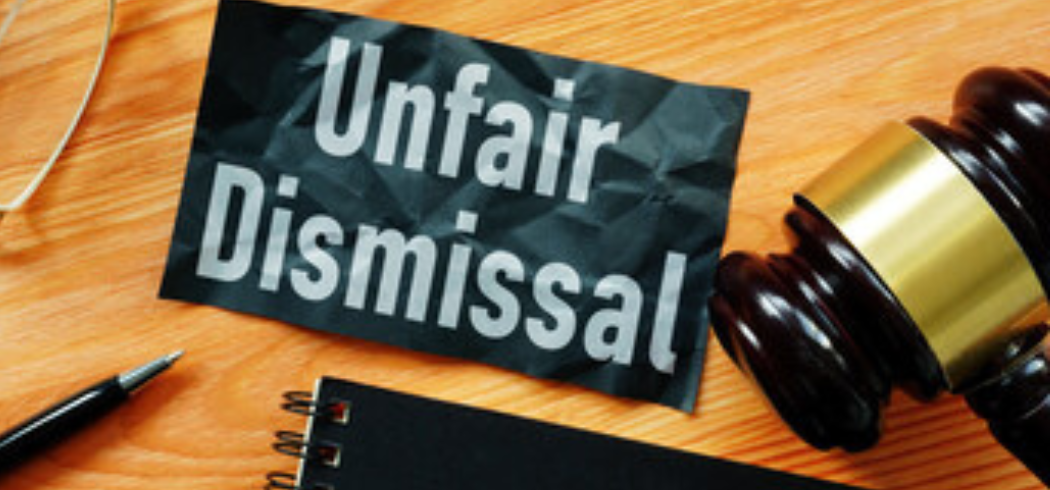What is unfair dismissal?
An employee who has been fired unfairly has done so in a harsh, unjust, or unreasonable manner.
A worker may be deemed to have been fired unfairly by the Fair Work Commission if:
- The individual was fired.
- The firing was stern, unfair, or unreasonable.
- There was no real redundancy involved in the dismissal.
- The firing of the employee, who worked for a small firm, did not follow the Small Firm Fair Firing Code.
Who can apply for an unfair dismissal?
If an employee who is covered by the national workplace relations system has been fired by their employer or was compelled to resign as a result of the employer’s actions and they have completed the required minimum duration of employment, they may file an application with the Fair Work Commission for unfair dismissal.
To be eligible employees must also be:
- covered by a registered agreement, covered by an award, or
- have annual earnings rates below the high income level, which is AU$167,500 as of July 1, 2023. Beginning on July 1 of each fiscal year, this level is adjusted.
*For more information and to check if you are eligible to lodge an unfair dismissal application, take the Fair Work Commission’s unfair dismissal eligibility quiz.
Within 21 calendar days of the dismissal’s effective date, employees must submit an application to the Commission.
You must get in touch with the Commission right away if you believe you were fired unfairly. For more information about unjust dismissal, go to the Commission’s website.
Unfair dismissal concerns are not looked into by the Fair Work Ombudsman.
Is there a minimum employment period requirement?
Minimum employment period
Minimum employment period refers to an employee who worked for at least a year in a small business. (Any business with fewer than 15 employees is considered a small business. This is estimated using a straightforward headcount of all regularly hired and systematic staff worked for at least six months in a larger company.)
When determining the minimum employment period, service with the first employer may be counted as service with the second employer (if there was a change in business ownership).
Should an employer give notice of termination to an employee?
In general, an employer cannot fire an employee without first providing written notice of the person’s last day of employment. The employee’s notice period may be paid to them (compensation in lieu of notice), or the employer may allow them to continue working through it.
The length of notice is based on the employee’s age, type of job, and length of continuously employed status with the company.
*For more information on notice of termination, including the minimum notice period which must be given to an employee, and any exceptions, please see Notice of termination & redundancy pay fact sheet.
What entitlements should be paid on termination?
When an employment relationship ends, employees should receive the following entitlements in their final pay:
- any unpaid earnings or any compensation that is still owed, any pay made in lieu of termination notice, any accrued yearly leave, and any long service leave rights.
- the total of all accrued but unused time off in lieu of overtime for the employee.
- if an employee has been made redundant and is qualified, any redundancy pay or rights.
The employer may withhold the outstanding balance from the employee’s last salary if they have taken advance leave and their employment ends before they have accrued it all back.
The Fair Work Ombudsman can conduct an investigation and take appropriate action if an employee feels that they have not received payment for all of their entitlements when their employment comes to an end.
If an employer does not uphold their responsibilities under pertinent Commonwealth workplace regulations, they may be subject to penalties.
FAQ
Q: Can a casual employee claim unfair dismissal?
A: Casual workers typically aren’t eligible for an unfair dismissal remedy unless they have a regular, systematic job and a reasonable expectation of continuing employment
Q: How much is a payout for unfair dismissal?
A: The Fair Work Act has rules about how much compensation an employer may be ordered to pay. An employee can only receive compensation for lost income. An employee does not always receive compensation, even if the dismissal was unfair.
Most employees only receive a small amount of compensation for unfair dismissal. The median is between 6-8 weeks of pay.
How can Workstem assist you?
Workstem is a one-stop payroll & HR platform with an award interpretation module and final pay that ensures employers stay compliant with Fair Work. The platform simplifies HR processes, reduces administrative burdens, and offers a user-friendly interface for small businesses and large enterprises alike.
Experience the benefits of Workstem for yourself!








